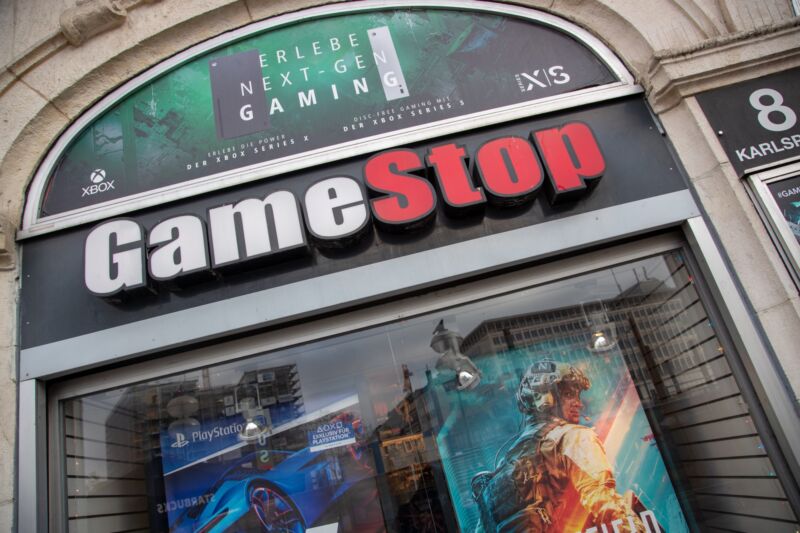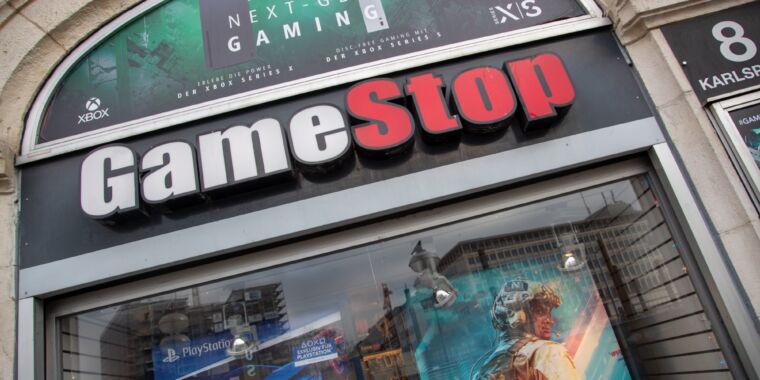
Getty Images | NurPhoto
GameStop has refused to pay $30 million in fees to Boston Consulting Group (BCG), the consulting firm alleged in a lawsuit filed Tuesday.
BCG said GameStop “has unpaid fees of approximately $30,000,000” but added that the exact amount “is undetermined at this time” because GameStop executives have refused to attend mandatory meetings or “provide the data that necessary to determine certain profit improvements.” The lawsuit has been filed in the U.S. District Court for the District of Delaware, seeking monetary damages for breach of contract and violation of the good faith and fair trade treaty.
According to the complaint, GameStop and BCG signed a contract in August 2019 in an effort to turn around the game retailer’s operations. “Once a highly profitable company, GameStop’s profits and financial prospects had fallen abruptly by mid-2010 and by 2019 GameStop was on a livelihood,” the lawsuit said. Bleeding customers and unable to grow its business, GameStop reported net operating losses of nearly $800 million in 2018, including a $970.7 million goodwill impairment charge to account for the loss in value of its business. Brand.”
Fees based on expected profit improvement
BCG’s complaint briefly referred to the short squeeze that contributed to a rapid rise in GameStop stock. “GME (GameStop’s stock ticker) was already one of the most shorted stocks from its float in early 2019 and became the most shorted stock in the United States in Q1 2020,” BCG noted.
But the lawsuit isn’t about GameStop’s stock price or even actual earnings improvements. BCG said its contract with GameStop was “provided that BCG would be compensated on a fixed fee basis or a variable fee based on the expected profit improvement.”
“Projected” is a key word in the complaint, as “BCG’s variable fees were based on projections, not actual profit improvements.” The complaint continued:
The concept of basing BCG’s variable compensation on expected improvements rather than actual results was negotiated and agreed upon by the parties specifically to ensure that BCG’s and GameStop’s incentives were aligned. This structure was intended to: Incentivize BCG to significantly improve profits; prevent BCG from being credited and/or punished for exogenous factors beyond the control of the parties; and to protect BCG from additional factors, such as GameStop’s execution risk, i.e. GameStop will not take the necessary actions to execute the plan and achieve the predicted results.
GameStop Defense: “Shareholder Interests”
BCG said it “spent tens of thousands of hours working on and surpassing this project, identifying and creating plans to seize substantially more profit improvement opportunities than estimated in the SOW [Statement of Work] and what was considered in the original scope of the SOW.”
GameStop told the Financial Times: “We do not believe it is in the best interests of our shareholders to pay the tens of millions of dollars being demanded by BCG, especially given their seemingly meager impact on bottom line results. We will fight this lawsuit and are proud that GameStop no longer uses BCG for any services.”
GameStop also said the lawsuit reflects BCG’s “prioritisation of excessive fees over customer interests,” according to a Bloomberg article. “It’s mind-boggling that BCG’s expensive consultants claim to have delivered hundreds of millions in value to GameStop during a time when stock price, sales and debt were at dangerous levels,” GameStop added.
We’ve asked GameStop for more details to support its argument that it shouldn’t pay the fee and will update this article if we get a response.

